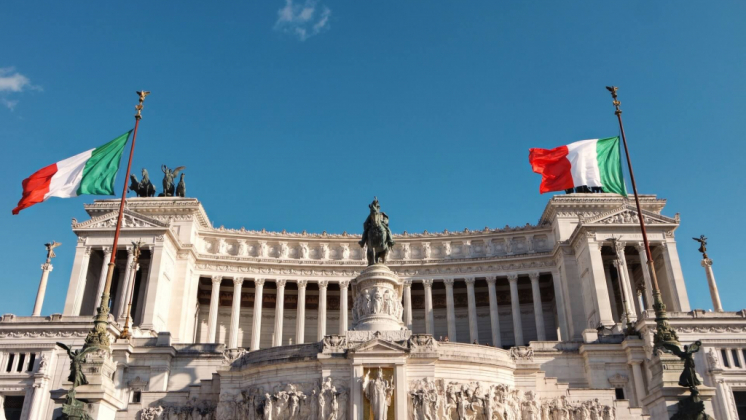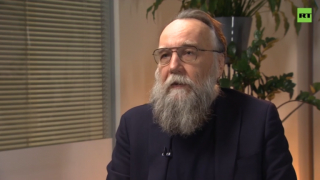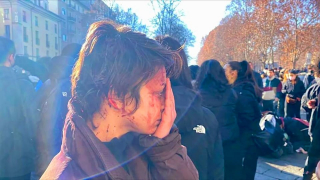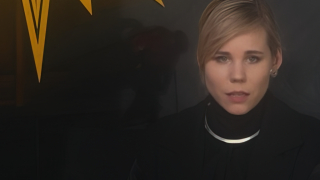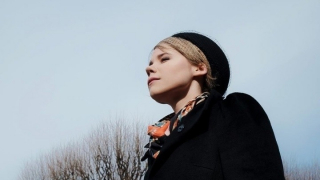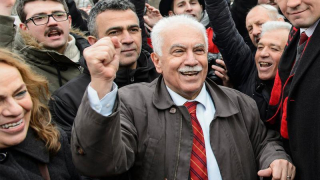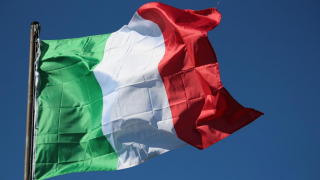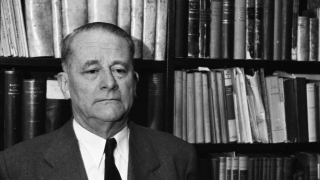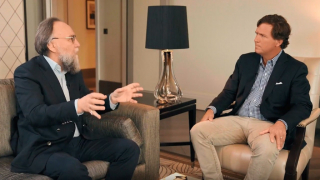The Covid to be forgotten
Italy has been forced to endure the pandemic Covid madness like other nations of the world and like all the countries of our collective West in full decadence. But this duress has been well tolerated by many Italians. Accustomed as they are to an undemanding daily routine based on the work-food- entertainment-work cycle, they had no difficulty at all in blindly believing the representation that was being staged before their eyes.
Following the anti-Covid diktats, even the most absurd ones, thus had for them the dual purpose of exorcising the fear of contagion (hence of death) and facilitating a return to ‘normality’. After all, many priests had already fled; many politicians were whining on television or posing as strong men with sadly caricatured results; official medicine was proceeding slowly, groping in the dark and it seemed as if the Apocalypse was just around the corner.
It is sad to say, but Ernst Jünger's words about how easy it is for a pet animal to find itself prey come to mind: it was the days of the First World War, the Battle of the Somme was in full swing, and Jünger pondered this idea between bloody clashes, having in mind the men of his generation and a softness he saw starting to creep in among them. What would he think of us now, if he were still alive?
But not all doctors slavishly followed orders from above, protocols, government decisions. Some refused and sought an alternative path, justifying their actions on the basis of their sense of duty to their patients. Unsurprisingly, they ended up on the Index, ostracized, under investigation. The good Dr Giuseppe De Donno, the incredibly generous Dr Giuseppe De Donno to whom we all owe so much, died, officially suicidal, despite having fully done his duty as a doctor.
Now that Covid seems to be water under the bridge and there is even a parliamentary committee of enquiry into the past management of the pandemic, prime minister Giorgia Meloni's electoral promise, I wanted to ask Dr Stramezzi, who was also in the eye of the storm as a “rebel doctor”, some new questions. The result is a new, long interview in which Dr Stramezzi expresses his point of view.
Q) Dr Stramezzi, thank you for being with us again. It has been a while since our first interview. Could you tell us what developments there have been regarding your suspension as a doctor?
A) The suspensions that I have suffered both from the medical register and unexpectedly also from the dentists' register (which does not make much sense given that there was talk of Covid, Covid therapies and Covid claims) have been 3 for a total of 18 months of suspension. Just today we filed the third appeal to the CCEPS [1], which corresponds to a second level of appeal, not before magistrates but before a commission appointed by Mario Draghi when he was Prime Minister, obviously at the suggestion of the then Minister of Health Roberto Speranza and the National Institute of Health. So, let's say that I will be facing, like all the other suspended or disbarred doctors and nurses, a firing squad. In practice, the same people I criticized for the mistakes made during the pandemic are also the same people who will judge me.
Q) Wouldn't it have been more logical for his case to be judged by magistrates instead of a committee of doctors?
A) For suspensions, disciplinary sanctions, censure and radiation made by the Medical Association, the concept is criminal because they are not civil matters on which there is a fine. We are talking about criminal and therefore there should be a criminal court of appeal. Actually no, there is the commission. Then the third degree passes to the judges, the real judges, the Supreme Court. But, as we know, this Court can enter into formal errors if it finds any and then refer to the second instance, and then always to the CCEPS. It cannot enter into issues of substance. So, it will be inhibited from being able to say “this doctor was convicted of things he never committed”. [The result will not change] If a measure is not taken by the government and the majority, as we hope, on the fact that all disciplinary measures of suspension and disbarment, I repeat not only of doctors but also of nurses, are to be considered null and void because by now there is a debate (and there is also a parliamentary committee) all over the world on the fact that decisions were taken that were probably not the best ones and therefore that certain dogmas affirmed by the ministry and the National Institute of Health could be questionable. Four lines would be enough: “all disciplinary measures taken regarding the pandemic in those years are considered null and void”.
Q) Before continuing, I would ask you to say a few words in memory of Dr De Donno...
A) Officially [De Denno] took his own life. I remember Dr De Donno's last interview, in fact it was a video he had made the day before he was found hanged. It was a video in which he praised life, by the way he was a practicing Catholic Christian who was very much a believer. Having said that, what do I think of Dr De Donno? I think a little differently from many. In the sense that he was certainly a courageous doctor in that he acted with his heart (courage means “acting with the hear”’) like many others. I don't think he was a genius in thinking of using hyperimmune plasma, the plasma of the cured, because, if you study the history of medicine, you know that it was something that was practiced over a hundred years ago, with the Spanish, which was won thanks to the plasma of the cured. Before we even knew about viruses, DNA, mRNA and electron microscopes. It was already known that those cured of an infectious disease possess antibodies that can help people who those antibodies cannot produce. Having said that, where is the great heroism and therefore the infinite esteem I have for Dr De Donno, whom I consider a hero? He was a hero not because he proposed hyperimmune plasma, he was certainly very shrewd, knowing that he was simply, as he put it, “a country doctor”, i.e. a hospital doctor in a not so important hospital. His shrewdness was to propose an agreement with the San Matteo polyclinic's infectious diseases clinic to propose a research agreement to the ministry. And thus, get it accepted, because if he had proposed it as a simple hospital chief, the ministry would have rejected it. But where is his great heroism? He [De Donno] treated 47 patients, saving all of them, and when he was offered a serious case of a pregnant woman, who was obviously outside the protocols, outside the bounds set for him by the ministry and the ethics committee, he was faced with a choice: to stay within the protocols and therefore ignore this treatment for this woman and condemn her and her baby to death, or deliberately violate the protocols knowing that this would lead him and his career to destruction. The act of heroism was that. So much so that in an interview he said “I would rather do a few years in prison than give up saving a life”. That was heroism. And unfortunately, he knew what was going to happen to him and what happened to him. The NAS [2] came etc. etc. I too had the NAS twice in the studio, don't think that's so strange.
Q) You have also treated many people, I remember that from the first interview. Even you have followed, in various ways, I think more than 6,000 patients....
A) More than 6000 were in May 2022. They are certainly over 10000 in total as of today.
Q) A huge amount, practically an army... Is there anything you regretted in your “approach” to Covid and anything you would absolutely repeat instead?
A) Let's say I would repeat everything. Really everything. I regretted not having been, as it were, more decisive, more drastic at the beginning. I knew, or at least believed, that I was in the right, because what I was doing was certainly guided by common sense, by knowledge of medicine, of infectious diseases, of pharmacology, and by experience of the scientific literature. Even Anthony Fauci suggested years earlier the same kind of therapy for SARS... Perhaps I was a little hesitant at first to say that. I mean, I said to the first cured cases, serious cases, “maybe this could be a therapy to be investigated because it worked in these first subjects”. Instead I should probably have been more assertive (but I don't think it would have changed much) in saying that this is a therapy that works. And so, the Ministry of Health, the Ministry of Universities and Scientific Research, and the Italian National Institute of Health should investigate, i.e. experiment with this type of therapy, which is not with strange, new and newly registered drugs, but with drugs that we have known about for decades, whose adverse events we know very well, and we know that [the therapy] can be effective.
Q) We often read and hear that people no longer want to talk about Covid and the epidemic. But is this really the case? Have people really decided to forget and move on?
A) Unfortunately, this is the case. And [this situation] reminds me of my father's stories after the Second World War. He used to tell me that people were fed up with hearing about war, sadness, death, poverty, misery. People wanted to have fun and the post-war period, he told me, was one of the best times because people were gay, they went out, they wanted to have fun and they didn't want to hear [war] stories any more. Here, I think the same thing happened. At a certain point, the human being can't take it anymore. For four and a half years now, almost five, we've been hearing about this “Covid” problem, about the grief, the suffering, that it has caused everyone, so it's normal that people can't take it anymore. What is the real problem? That people don't realize that we are actually out of it. Covid, let's say, was a ‘dress rehearsal’ of what [others] are still doing, still preparing to do to all of us. And so, we need to remain vigilant, to talk about it, to understand the causes, to condemn the faults and the guilty.
Q) The Meloni government has launched a commission of enquiry into the handling of the pandemic, a commission that many considered lame from the outset and doomed to failure. What results can we expect from its work?
A) It is clear that each parliamentary group has the right to appoint its own committee members, obviously depending on how they were elected, in which party how many members there are in parliament. So, it is normal that we find Mrs Ronzulli or Conte [3] inside, but this does not mean that the Commission is lame because of this. I hope and think that the work of the Commission, which has the same investigative power as the judiciary, will point out many things that were wrong and therefore also the faults, let's say, the serious errors that cost the lives (I keep remembering this) of at least 190,000 patients who in my opinion could all have been saved given that we already knew how to treat patients and how to cure them. So, it is clear that there is serious responsibility for having obstructed these therapies, thus leading to this high number of deaths, and the reason is very simple: these pro-gene drugs called ‘vaccines’, also in order to reduce the necessary drug trials, were approved on an emergency basis only because no possible therapies existed. But, in reality, the therapies existed and were denied and obstructed precisely to allow the marketing of these gene pro-drugs called “vaccines”. I believe that the final report of the parliamentary committee of enquiry into the pandemic will probably be indicative of many errors and, probably, reports of offences, and it will be the duty of the Commission to pass it on to all the public prosecutors' offices in Italy. I therefore hope that, following this report, some public prosecutors' offices in the various Italian capitals will begin serious and criminal investigations.
Q) Professor Frajese was appointed as an advisor to the committee. Do you think this choice is well thought out? Perhaps you will also be summoned in the future?
A) Not only Professor Giovanni Frajese but also Dr Alberto Donzelli has been appointed as advisor to the Commission. This is very important, and it is very right, because the Commission has heard and will hear many people who will speak in scientific, technical terms, it is very important that there is someone who, precisely as an advisor, interprets these statements and data from a scientific point of view and translates them for the Commissioners. They could also suggest some hearings. So [Professor Frajese's presence] I consider it a very positive thing. On the fact that I can be heard... I hope so, I hope so. Together with other doctors, we collected almost 70,000 signatures to be heard and the President of the Commission wrote to me about ten days ago [before Christmas 2024] a reply by e-mail, which he also published on his X profile, in which he thanked the five of us for the work we had done (I am talking about Professor Bizzarri, Professor Capucci, Dr Giovanardi, Dr Barbaro and myself) and expressed the hope that the Commission would be able to hear us. As it is not the President of the Commission who decides but the Commission itself.
Q) What do you think of the government's new pandemic plan, which should avoid the mistakes and horrors we witnessed during Covid?
A) I think that, unfortunately, it is still too closely linked to the World Health Organization and its pandemic plan and amendments to the International Health Regulations. In practice, I fear that if it is adopted slavishly as the World Health Organization would like, we could find ourselves slavishly in the same situation with a possible next pandemic, even though we know from the history of medicine that pandemics happen one per century. Assuming that this pandemic was natural, and I do not believe this (and neither does the FDA because there is a sentence written by the FDA towards the end of 2018, if I am not mistaken, in which they warned about certain dl gain of function research on viruses), I fear that new pandemics are brewing. And so, we have to be aware of this and be ready, precisely by not forgetting what happened from the beginning of 2020 to today, to fight these criminal minds that wanted to put us in the hands of the dictates, the desires of Big Pharma.
Q) Looking abroad, how do you assess Kennedy Junior's presence in the next Trump administration? Is it possible that it will benefit not only the United States but also Italy?
A) Absolutely. Absolutely yes, because we know, first of all, that the United States leads, unfortunately, is the leader of the various measures taken in favour of Big Pharma, in favour of big investment funds, and not only in medicine but also in defence, in food, in the energy crisis, etc. But it is clear that it will be very important to remove the top management of the FDA, the CDC and other government agencies that have unfortunately led the world's reactions to the pandemic. And so, we hope that Europe too, EMA in the lead, will slowly start to follow these new directives. There are huge conflicts of interest, and both Donald Trump and Robert Kennedy Jr. know this very well, and their goal is precisely this: to get people who are full of conflicts of interest to take their hands off medicine. Furthermore, I would like to say one thing: I had already suggested to Robert Kennedy Jr. that he take down his independent candidacy and go with Donald Trump (because, clearly, he had no chance of being elected president) and this is what happened and it made me happy. A candidate was elected to the presidency and immediately started, even before he took office, to fulfil the promises he had made. Unfortunately, in Europe we are no longer used to this, not even in Italy.
Link to the video interview (Italian only):
https://rumble.com/v65je1g-il-covid-da-dimentiare.html
[1] The CCEPS is the Italian Central Commission for Health Professionals.
[2] The NAS are the Anti-Sophistication Units of the Italian police.
[3] The MP Licia Ronzulli has always stood out for its strong “pro-vax” position. Giuseppe Conte is the Italian prime minister who managed the initial phase of the pandemic and was replaced in the post by Mario Draghi in February 2021.

